What to Expect When Your Chickens are Expecting
Typically, young female chickens “come into lay” between four and six months of age. Some chicks may start laying as early as 16 to 18 weeks, but some may take until 30 weeks. But why does this happen? How does this happen? And what can we expect when our birds are expecting?
Egg Laying Factors
The onset of laying is influenced by so many factors, including age and breed, sexual maturation and exposure to light.
Age and Breed
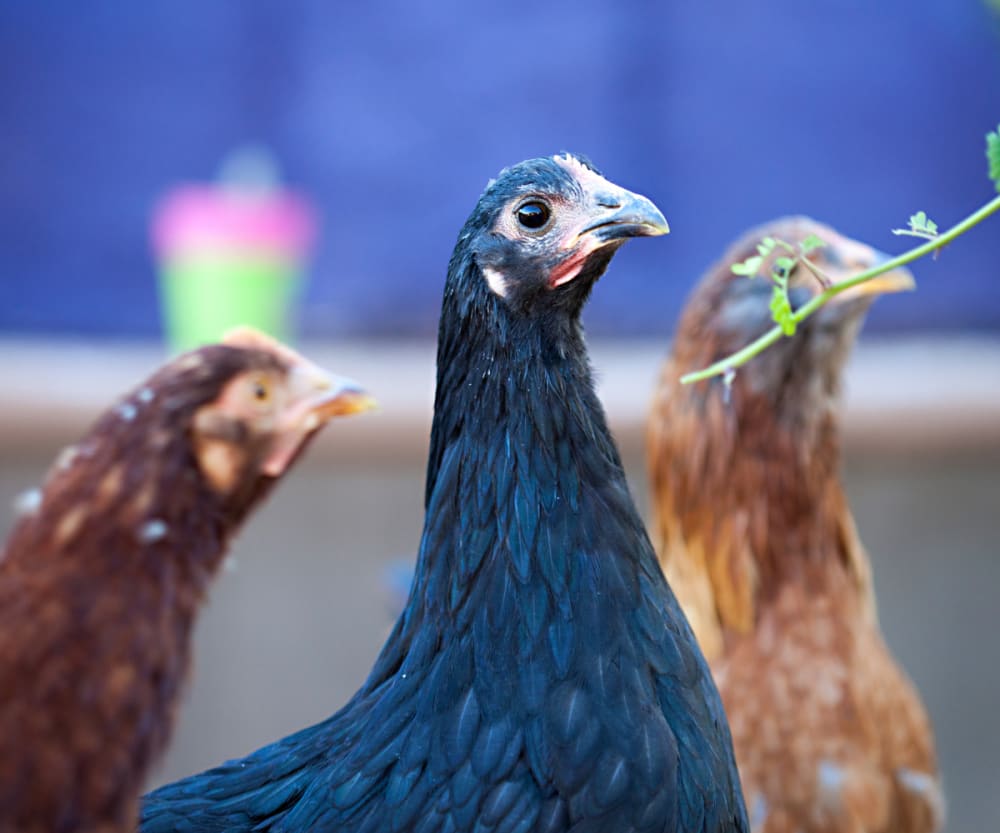
The age that your chickens start to produce eggs is influenced by their specific breed. Certain chicken breeds are known to begin laying earlier than others. For example, chickens that have historically been bred for the purpose of egg production will often mature faster and start laying sooner. These breeds include leghorns, Rhode Island reds and Australorps. Some of the heavier breeds, like Orpingtons and barred rocks, take a little bit longer.
Sexual Maturation
Egg laying begins soon after your birds reach sexual maturity. A female chick is hatched with a pair of ovaries as well as the precursors for every egg she will ever lay. Very soon after hatching, the right side will regress and only the left ovary and oviduct will continue to develop. This development is impacted by the weight of the bird and her percentage of body fat. As a survival mechanism, reproductive organs will not fully develop if an animal is underweight or overweight. This ensures that when a chick is hatched, there will be enough resources available for it to survive.
Exposure to Light
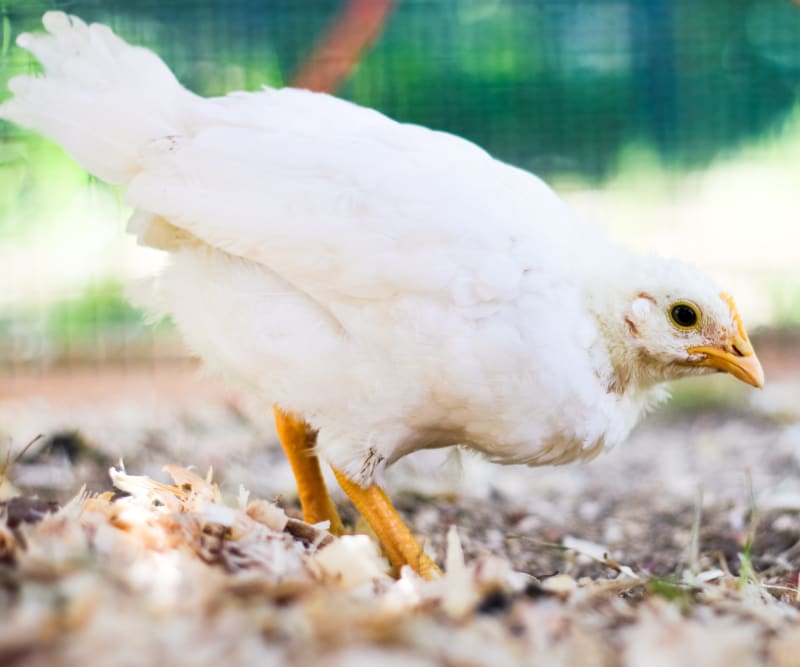
One last factor that drastically impacts when a young hen will begin to lay is photostimulation, which is the activation of biological processes or compounds due to the presence of light. A small portion of the bird's brain, called the pineal gland, is responsible for processing light input and secreting melatonin and serotonin. This guides their circadian rhythms, which refers to patterns in bodily processes over a 24-hour period.
Chickens and other avian species are long-day breeders, making spring and summer the perfect time for fresh eggs from your coop. In the fall and winter, layers are naturally cued to stop laying eggs as often in response to shorter days and less daylight hours.
So, your birds are finally mature. What happens now?
The First Eggs

Around 16 to 18 weeks old, you can expect your hens to lay their first eggs. Outside of age, your hens will give you plenty of hints that they are getting ready to begin laying eggs, such as:
-
Their combs and wattles will be bright and plump.
-
They may start exploring their nesting area or exploring more confined spaces available in their coop.
-
They may become more vocal.
If it’s spring or summer, you can expect your hens to lay one egg a day. In the fall or winter, hens will lay less.
Eggspect the Uneggspected
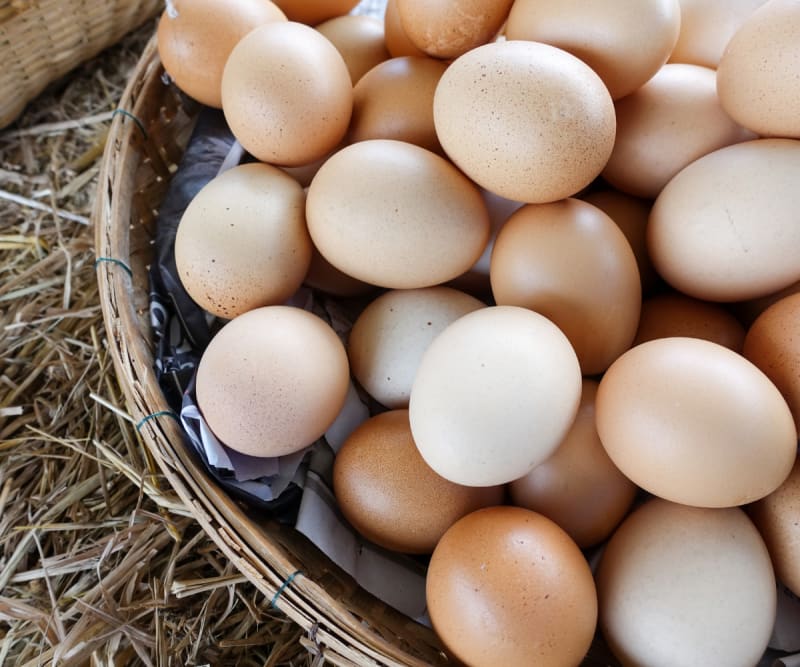
The first egg that the hen lays is often much smaller than her average egg size. There may also be several abnormalities from shape and size to calcium deposits and soft spots. Calcium deposits look similar to pimples on the shell of an egg. These are just areas where extra calcium was deposited on its way through the shell gland. Soft spots are the opposite—areas of the shell where not enough calcium was placed to harden the exterior of the egg.
When your chickens lay eggs, it's also possible to get an egg with no yolk or extra yolks. This is completely normal! As your hens initially come into lay, their bodies are still getting accustomed to the hormones and processes required to lay an egg. Once they are adjusted, these issues will resolve themselves.
How to Help Your Laying Hens
Although your hens make it look easy, it’s a tough transition. You can help your young hens lay eggs by making sure they have warm nesting boxes, lots of clean drinking water and proper nutrition. To raise healthy chickens, we always recommend our supplements Hen Helper, Catalyst and Mother Load for complete backyard coop care.
Nesting Boxes
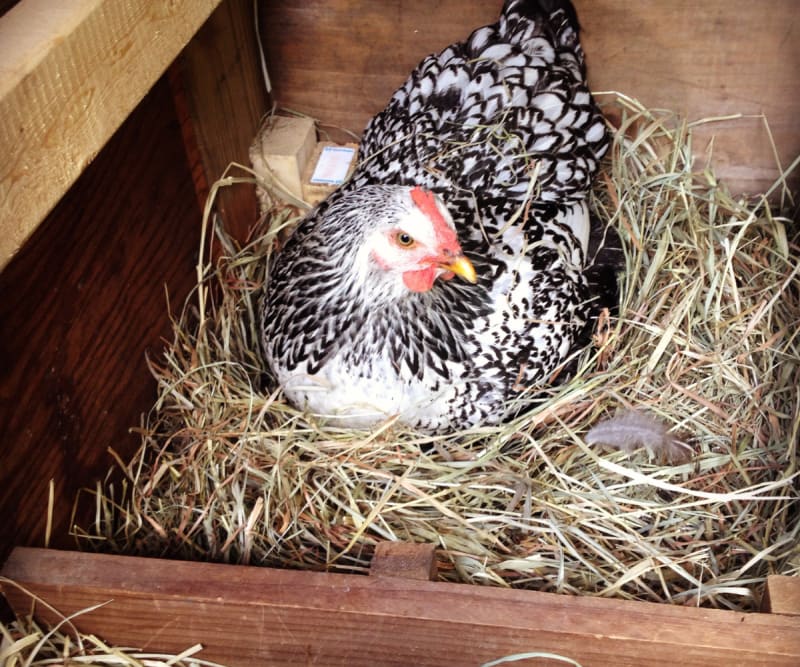
For a proper nesting box, or nest box, setup in your coop, it's recommended to have one nest box for every four to five chickens. This will ensure each hen has plenty of space. Filling the nest boxes with soft material, like pine shavings or straw, will give your hens' eggs a soft place to land to prevent egg breakage.
Natural Chicken Supplements
Hen Helper
Hen Helper is an all-natural probiotic that aids in digestion and gut function. It helps ensure that all of the available nutrients make it into the egg.
Catalyst
Catalyst is filled with vitamins to aid in reproductive health. It also boosts immunity and helps promote leg and bone development, heart health, skin health and blood health.
Mother Load
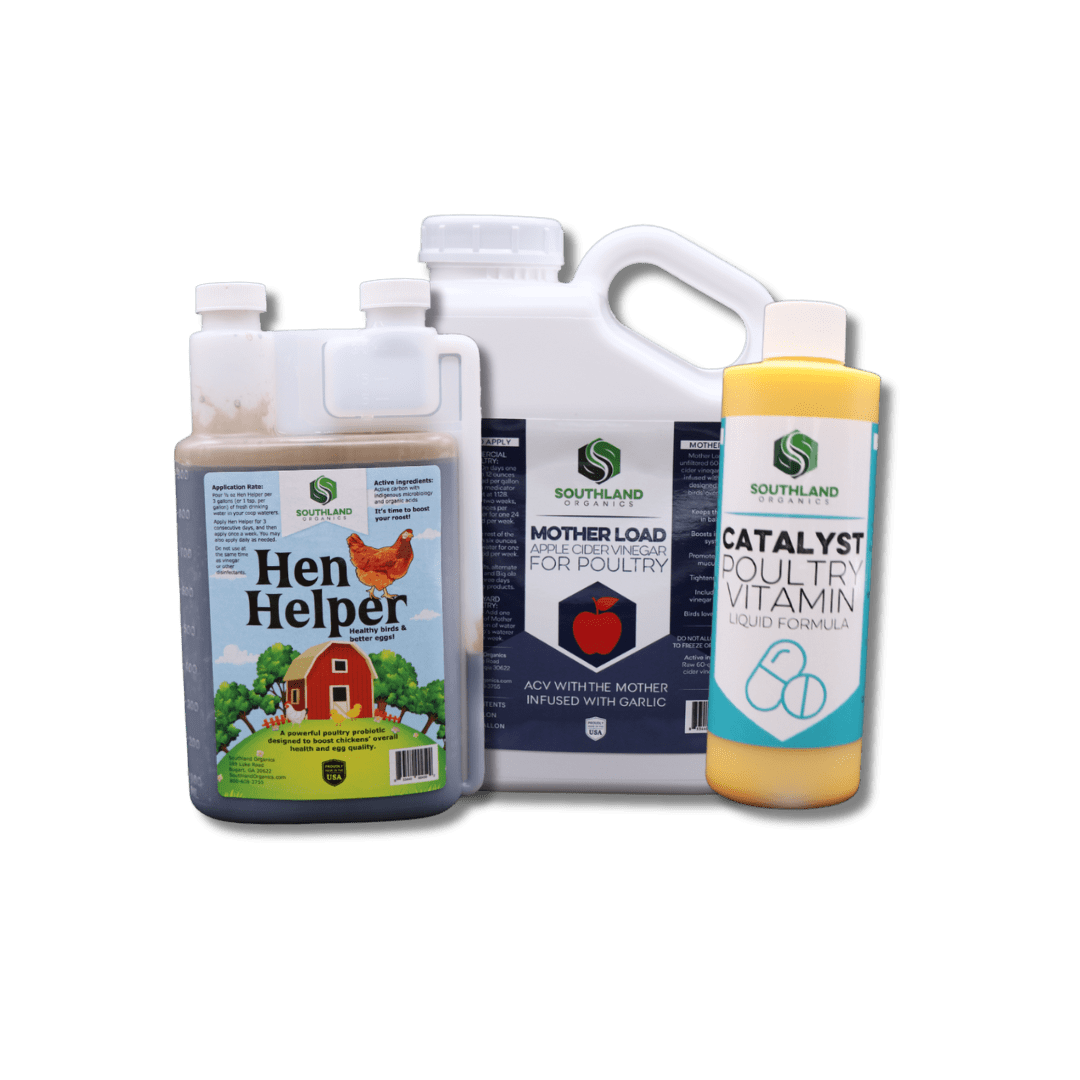
Mother Load is raw apple cider vinegar (ACV) infused with garlic. Our ACV is designed to boost your birds' overall health, aid in digestion, keep the GI tract healthy, tighten the gut and provide bacteria that support poultry development.
We sell all three of these natural nutrition supplements in one package called our Backyard Poultry Bundle. Buying these products together saves you 23%!
For detailed instructions on how to use these products for your coop, check out our backyard poultry dosing chart.
A Few Reminders
Remember, a healthy bird is a happy bird—and a happy bird is more productive. As you gear up for your hens to lay eggs, keep these things in mind.
-
Different breeds lay at different times.
-
Hens lay more often in the summer than they do in the winter.
-
If a hen’s first few eggs come out a little funky, there is nothing to worry about.
Make your chicken coop a happy and healthy place, and leave the rest to biology.
Contact Us
If you have any questions about what to expect when your chickens are expecting, reach out to [email protected] or give us a call at 800-608-3755.








